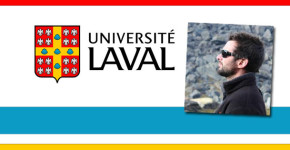Month: April 2014
-

Victoria Kaspi, McGill University – Moving Neutron Stars
What is left after a star explodes and dies? The answer is a neutron star. Dr. Victoria Kaspi, professor of astrophysics and cosmology at McGill University, is piecing together the structure of a specific type of neutron star called a magnetar. Dr. Victoria Kaspi is the Lorne Trottier Chair in Astrophysics and Cosmology at McGill University in…
-

Larissa Samuelson, University of Iowa – Play With Your Food
Maybe you should let your children play with their food! It seems like a mess just waiting to happen, but Larissa Samuelson, associate professor of psychology at the University of Iowa, is demonstrating that playing with one’s food might be a beneficial part of the learning process. Dr. Larissa Samuelson is an associate professor of…
-

Jeffrey Froh, Hofstra University – The Benefits of Gratitude
The feeling of gratitude can positively influence all the other factors of one’s life. Dr. Jeffrey Froh, associated professor of psychology at Hofstra University, is studying the far reaching effects that gratitude has on children. Dr. Jeffrey Froh focuses his research on the connection between personality psychology, social psychology, and developmental psychology. He writes extensively on topics…
-

Victor Albert, University at Buffalo – Ancient Lineage of Flower DNA
Studying the DNA of the ancient Amborella flower is opening up new insights into the evolution of certain plants and animals. The University at Buffalo’s Dr. Victor Albert is looking deeply into the ancient origins of this Amborella and working to sequence its genome in order to better understand how life has developed on Earth. Dr. Victor Albert…
-

Hans Meltofte, Aarhus University – Arctic Biodiversity Threatened By Climate Change
Rising temperatures are threatening the biodiversity of the Arctic. Dr. Hans Meltofte, senior scientist at Denmark’s Aarhus University, describes the negative impact of climate change in this area as “already visible” and details the serious ecological consequences that are resulting. Dr. Hans Meltofte is a senior advisor and senior scientists in Aarhus University’s Department of Bioscience.…
-

Michael Inzlicht, University of Toronto – The Science of Self-Control
Is there a measurable limit to the amount of self-control each person possesses? Dr. Michael Inzlicht, associate professor of psychology at the University of Toronto, studies self-control and is helping to debunk a popular theory regarding the now widely studied topic. Dr. Michael Inzlicht earned his Ph.D. in Experimental Psychology from Brown University, 2001. His…
-

Nathan Spreng, Cornell University – The Aging Brain Network
Breakthroughs in how we understand the human brain’s structure and internal communication networks are helping scientists track neurological changes over time. Dr. Nathan Spreng, assistant professor at Cornell University’s Department of Human Development, is using advancement in neuroimaging to better understand how the brain functions and changes as we age. At Cornell University, Dr. Nathan…

